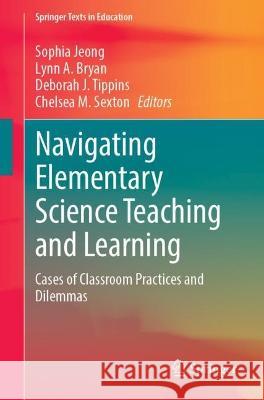Navigating Elementary Science Teaching and Learning » książka
topmenu
Navigating Elementary Science Teaching and Learning
ISBN-13: 9783031334177 / Angielski / Miękka / 2023
This book is a resource for both prospective and practicing elementary teachers as they learn to teach science in ways which foster the development of a community of science learners with multiple perspectives and diverse approaches to problem solving. It includes cases that feature dilemmas embedded in rich narrative stories which characterize the lives of teachers of science, and by extension their students, and serve as tools for discussion, critique, and reflective practice.
The introduction to the book explores changing contexts for elementary science teaching and learning, and describes how case-based pedagogy can be used as a tool for both instruction and research. Each subsequent section of the book includes cases that are organized around topics such as contemporary approaches to teaching elementary science, new roles for technology, and the creation of inclusive learning environments for all students in elementary science. Each case is followed by reflective commentaries and concludes with questions for reflection and discussion. Teachers will benefit from these cases as they explore the complexities and ambiguities of elementary science teaching and learning in today’s classrooms.











